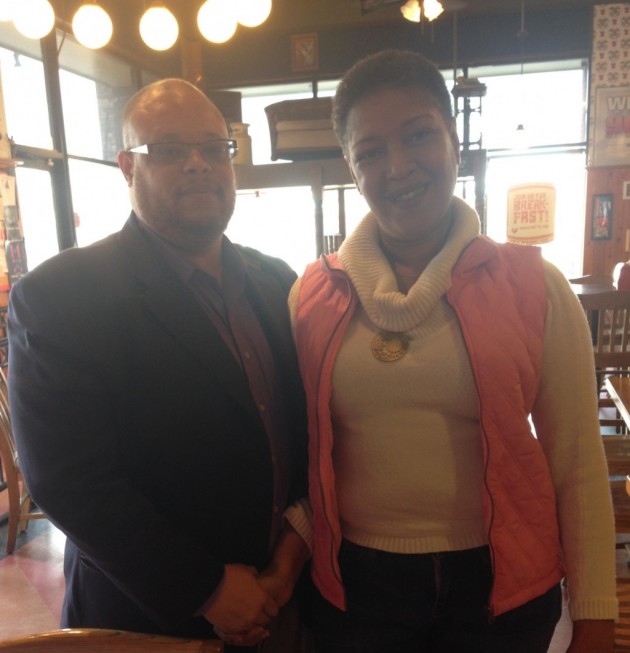Marriage, cultural representation and HIV/AIDS are among some of the major topics on the minds of many black women today.
As part of the Black Women in America series at The Washington Post, a panel discussion entitled “Peeling Back the Labels: Black Women in America” hosted by The Post and Howard University’s “Women As Change Agents” brought these ideas and more to the forefront. Women of various ages and professions were able to share their thoughts.
The discussion took place Wednesday evening in the Blackburn Ballroom of the Armour J. Blackburn Center on Howard’s campus.
The panelists included Cara V. James, Ph.D., the director of the Disparities Policy Project for the Kaiser Family Foundation, Rahiel Tesfamariam, editorial director for UrbanCusp.com, Krissah Thompson for The Washington Post and Tricia Bent-Goodley, Ph.D., a professor of social work at Howard.
Serving as the event moderator was Michelle Singletary, a personal finance columnist for The Post.
“I see myself; I see my sisters; I see my friends; I see you,” said Singletary addressing the audience. “I hope you’ve been reading this series. I hope these stories have invited you to look into the lives of women who are often misunderstood, mistreated, misrepresented and misinterpreted.”
Many of the issues addressed during the panel have been reflected in a series of articles published by The Washington Post. The recent series of articles findings from a new survey conducted by the newspaper and The Kaiser Family Foundation on issues many black women deem important in their lives.
“Having two teenaged daughters, it was very powerful for me to hear a lot of the pieces as far as marriage and relationships and career,” said Tracie Gaines Nelson, a resident of Upper Marlboro, Md.
Nelson, her mother Ruth Lawrence Driver and two daughters, Alani and Niya, were featured in Thompson’s story, “Survey paints portrait of black women in America,” which reflected their relationships with one another.
“I don’t want my daughters to think that seeing so much divorce in our family that marriage is something that they shouldn’t look forward to, but if they stay focused on their purpose, everything will come that’s supposed to come,” Nelson said.
During the panel’s discussion Tesfamariam weighed in on HIV/AIDS awareness and stigma in the black community.
Tesfamariam, 30, said there’s almost an arrogance that comes with being educated about HIV/AIDS. She said throughout her 20s it was an issue rarely addressed.
“The more educated you are the safer you feel,” she said.
Prior to the panel, guests were asked to RSVP and send in their questions for the discussion. Toward the end of the evening, the panelists addressed some of those questions.
One question selected came from sophomore print journalism major Sondai Costley. Costley’s question centered around how black women are approaching college debt. Impressed with her question, Singletary asked her to stand and Robert Pierre, editor of The Root DC at The Washington Post gave her his seat in the front row.
Costley, who almost didn’t make it to the program, said she was grateful to be recognized.
“I felt very nervous, my voice shaking, but I felt empowered,” Costley said. “I actually emailed them earlier. I RSVP’d to cover the event, and they said that it was full.”
Singletary closed off the event by reading Langston Hughes’ poem “Mother to Son.”
“I love what all the women were saying is that-we’ve gotta change the image of how people look at us. We’ve gotta give back. We’ve gotta love ourselves,” she said. “Get help if you have health issues, financial issues, mental issues.”
Thompson and Bent-Goodley will continue Wednesday’s discussion during a chat on The Washington Post’s website at noon today.



